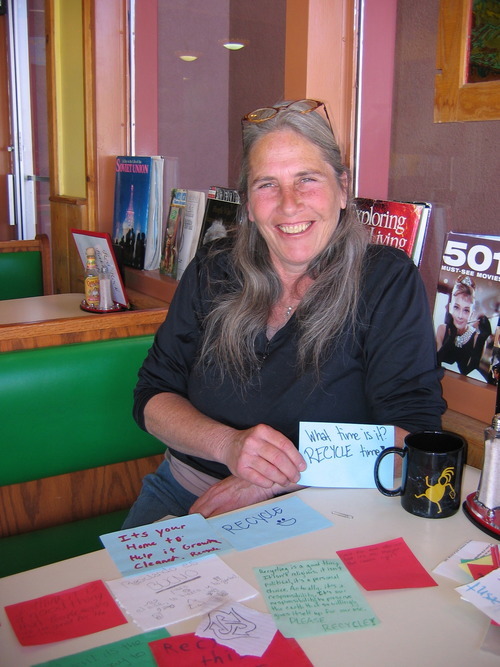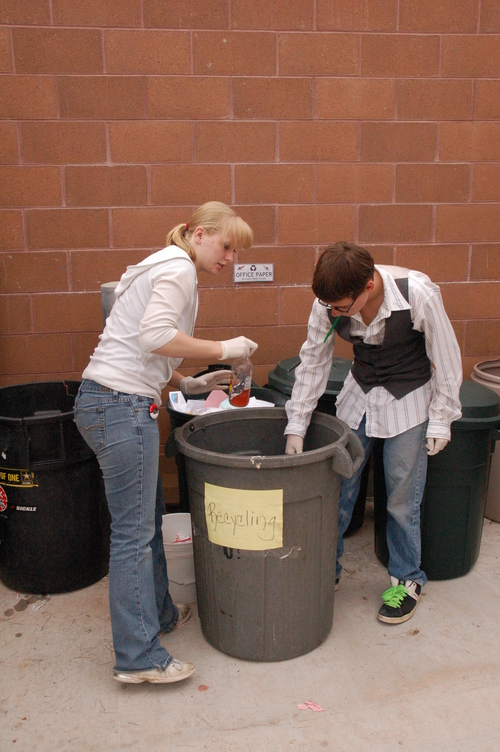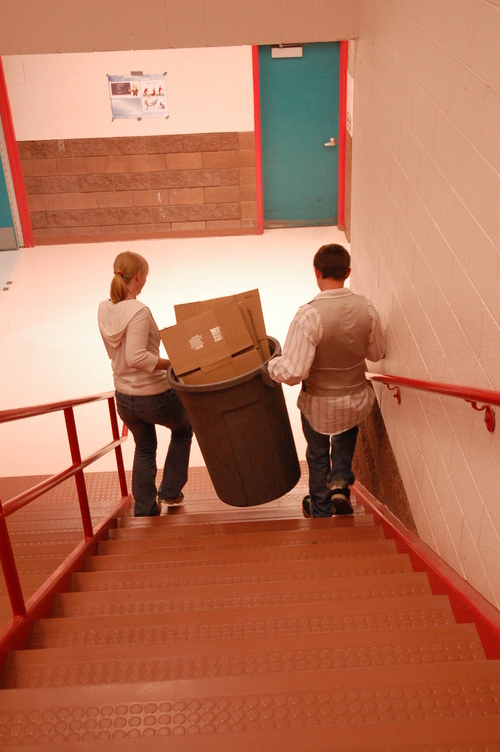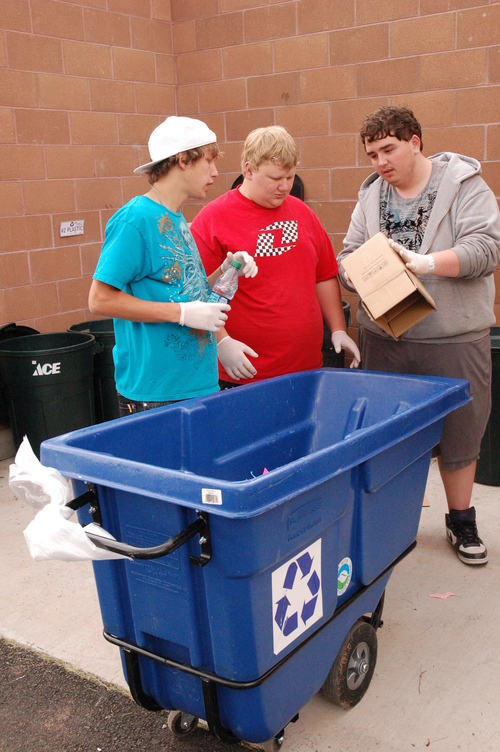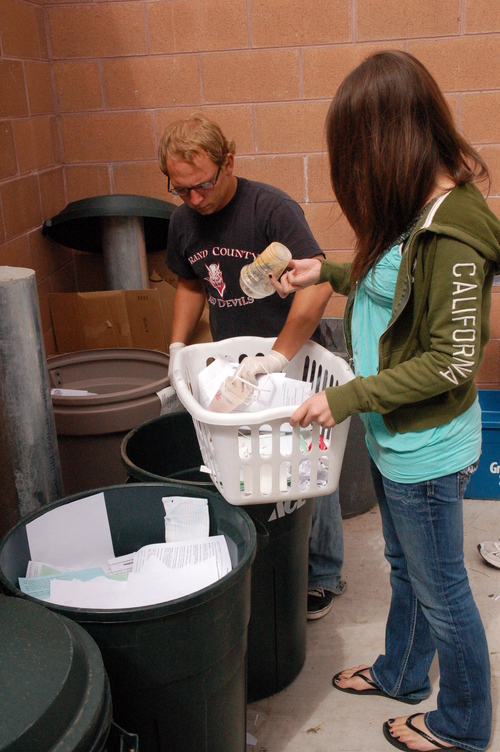This is an archived article that was published on sltrib.com in 2011, and information in the article may be outdated. It is provided only for personal research purposes and may not be reprinted.
Moab • Trucks used to come to Grand County High School once a day — and sometimes twice — to empty the garbage bins.
Now that recycling has caught on, the dump runs have tapered to twice a week. And recycling isn't so much a topic of discussion as it is a part of everyday life for students like junior Tanika Lewis.
"We don't talk about it," she said. "We do it."
Lewis is one of 30 students in Mary Walker-Irvin's ecology class, where recycling is part of the curriculum and students spend about a half-hour a week collecting and sorting recyclables.
"This is a way to drive the idea of ecology home," Irvin said.
School-wide recycling began at Grand County High four years ago with the Recycling Club. But it stumbled when some students treated club activities as a way to ditch class. Too few volunteers were keeping up with the weekly chores, and bins were overflowing, said Sara Melnicoff.
The founder of Solutions of Moab, which promotes a variety of recycling efforts around town, Melnicoff has worked with students on and off over the years to keep the program running.
"We're No. 1 in waste worldwide," she said, citing an estimate that each American generates 90,000 pounds of garbage in a lifetime.
"If kids start to recycle, they understand why it matters," she added. "They know to be more gentle to the earth [and they learn] if you do something good for the earth, it ends up being good for you."
Irvin, a retired Air Force meteorologist who joined the school's science faculty four years ago, thought the project would be a meaningful addition to the regular ecology coursework that includes such issues as nuclear power, invasive species, water pollution, alternative energy and competition for resources.
Learning about waste and its impacts on the environment is part of the coursework. And participation in the recycling effort is now a course requirement.
Irvin says, "We've gotten it down to a science — not to sound corny."
Not only are she and Melnicoff proud of the students, but the students are proud, too.
They coach their peers on recycling etiquette — take the caps off those clear water bottles and toss them into the garbage because they can't be recycled — and find themselves recycling wherever they go.
As a result, school grounds are neater. And participating students feel as though they're making a lasting difference in the world.
"Recycling should be part of every ecology class," said senior Sean Black, who helps with recycling at school every Wednesday morning. When people take recycling seriously, he added, "the air is fresher, and the water is cleaner."
As they sort the paper from the newspaper and put the various types of plastic into their respective bins, the students come to appreciate all the waste in their midst. Recently they marveled at how stuffed the container was for valuable aluminum.
"I was surprised how much recyclable stuff we use at school," said Black. The bins "get full real quick."
"Especially the paper," added Mina Frandsen, a senior who now takes care not to waste the paper she uses.
Now it's not recycling that seems odd, the students said. Not recycling is "weird," Frandsen said.
She has seen it when she travels to other schools and other cities and recycling bins are nowhere to be found. Recycling, she said, "it's just something you do."
Recycling facts
Each day Americans throw away enough garbage to fill 63,000 garbage trucks.
The average American will personally throw away 600 times his or her body weight during his or her lifetime — an average of 90,000 pounds.
Half the garbage Americans throw out could be recycled. That's enough to fill a football stadium from top to bottom every day.
Americans toss enough aluminum to rebuild the entire commercial air fleet every three months.
They throw out enough steel to reconstruct Manhattan.
The waste-disposal costs nationwide exceed $100 billion a year.
Source: Recycling Coalition of Utah


